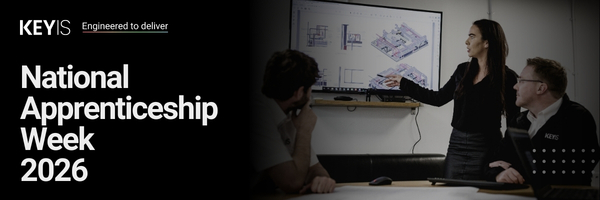Why are apprenticeships falling in our sector?
The future is full of exciting possibilities for young people who have recently entered, or are about to enter, the job market with an apprenticeship or job . With the rapid emergence of new technologies providing solutions to every kind of urgent human need, from housing to transport, healthcare to carbon net-zero and communications to infrastructure, engineering is one of the most vital of all industries.
Engineering is the foundation of a sustainable future and getting in on the ground floor could be one of the best decisions a young person can make. Apprenticeships are proving to be the obvious way of doing this. However, the number of students taking up engineering apprenticeships in the last few years has declined and is set to continue doing so. So why is this?
Higher education required for an apprenticeship?
In 2019/20, there were 52,000 students in Engineering and Manufacturing Technology apprenticeships, 16% of all apprenticeships that started that year. This was down 8,000 from the previous year. One reason young people might be put off is the common misconception that you need to have a higher education qualification to be eligible. In fact, for many apprenticeships, many ask for GCSEs in maths and science but are more interested in your manual dexterity, interest in problem-solving, teamwork ability and an enquiring mind. It’s true that more advanced apprenticeships may demand A levels or a previous apprenticeship qualification, but effectively this simply allows you to start with your foot on a higher rung: the ladder can be climbed by anyone, wherever they begin.
Low salaries for apprenticeships?
Another reason for disinterest could be the pay. While an apprenticeship offers a fantastic learning environment for career starters and changes, the pay can often be viewed as disappointing. Despite this, apprentices earn the national minimum wage and have great prospects for pay rises once they have completed their qualification. While an apprenticeship offers a fantastic level of practical education, it has a certain stigma that it is somehow worth less than A- levels or a degree. This is simply not the case.
Apprenticeships in the engineering sector, as in any other industry, do not tie you to your first employer: you are not obliged to pursue your career within one company unless you wish to. The training and qualifications you receive will provide you with a choice of career prospects, including different locations and specialisms. An apprenticeship is the perfect foundation block for a career of virtually unlimited potential.
Why you should consider an apprenticeship in the engineering sector
Where industrialisation used to be about building bigger and growing richer, the modern global economy is about building better and growing together. This is just one of the reasons why apprenticeships in the engineering sector should be considered the gateway to a satisfying and rewarding career.
The contribution of engineering to improving lives is considerable. It is not just about grand designs and headline-grabbing construction projects. Engineers are just as likely to be employed on irrigation schemes in sub-Saharan Africa as they are on constructing new football stadiums. It is a creative industry focused on problem-solving and helping people live better lives.
You don’t have to be a chief engineer or lead designer to make a valued contribution. Apprenticeships in the engineering sector are devised to be as practical as they are theoretical: you learn by doing. It is a hands-on introduction to this highly challenging, varied and rewarding profession.
What are some of the specific benefits?
Career satisfaction
This is virtually guaranteed. Technology is constantly evolving, and that heavily influences engineering. Even at apprentice level, you will be working at the cutting edge, developing new skills, discovering new techniques and learning something new every day.
Specialist skills
Apprenticeships in the engineering sector cover a wide range of disciplines. You’ll have the opportunity to acquire specialist skills that are infinitely transferable across this broad industry. As an apprentice, you’ll develop strengths in project management and problem-solving, emerging with a versatile and adaptable skillset and attitude.
Tangible rewards
To be frank, some industries simply pay better than others. Engineering is generally a high-value sector which means remuneration levels can be very attractive. Additional upward pressure on salaries is caused by the way in which demand outstrips supply of both qualified engineers and trainees. When businesses struggle to fill their vacancies, the jobs market favours candidates. As a result, you’ll find that starting salaries even for apprentices can be among the highest of any profession.
What kinds of apprenticeships are available?
Engineering is such a broad discipline that it is almost impossible to be definitive. Manufacturing is a branch of engineering that readily comes to mind and an apprenticeship in this sector could lead to a career in the aviation, marine or the automotive industry. Engineering construction might involve you in designing and creating the built environment, where engineers are at the leading edge of sustainability and green solutions.
The telecoms industry relies on the expertise of engineers to maintain and develop the communications systems that will make the world more connected and ensure the fast, safe and secure transfer of information and digital assets. Even on a smaller scale, engineers are indispensable to the routine installation and maintenance of industrial, commercial and domestic equipment such as boilers, innovative heating systems, air-conditioning, smart home solutions, telephony and security.
Unlock your future
If you’ve ever considered a career in engineering, even casually, then now is the perfect time to take it into serious consideration. Grab the opportunity to break into this uniquely satisfying profession at the start of your working life.


